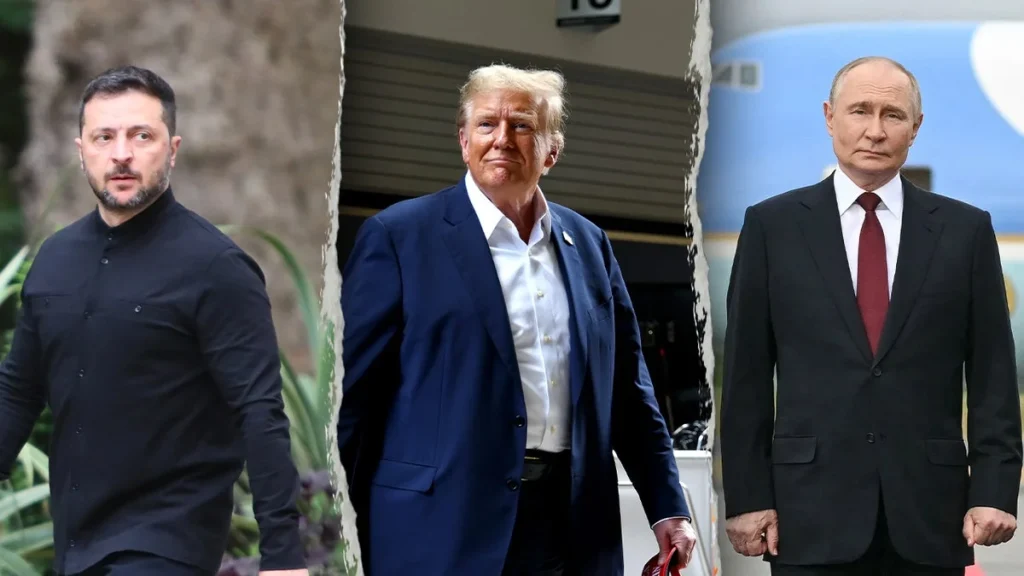The Kremlin has played down talk of an imminent summit between Russian President Vladimir Putin and Ukrainian President Volodymyr Zelensky, despite U.S. President Donald Trump pushing for direct negotiations to end the war in Ukraine.
Trump’s calls for talks follow his recent meeting with Putin in Alaska and a separate meeting at the White House with Zelensky and seven European leaders.
Trump: Putin May Not Want Peace
Speaking on Tuesday, Trump admitted the war was “a tough one” to solve and raised doubts about Putin’s intentions:
“We’re going to find out about President Putin in the next couple of weeks. It’s possible that he doesn’t want to make a deal.”
While initially proposing a three-way summit with himself as mediator, Trump now suggests it would be “better” for Putin and Zelensky to meet directly—without him—though he would join “if necessary.”
Russia Downplays Urgency
Although Putin reportedly told Trump he was “open” to talks, Russian Foreign Minister Sergei Lavrov quickly walked that back, saying any meeting must be prepared “gradually” and begin at the “expert level.”
Russia’s UN deputy envoy Dmitry Polyanskiy added that no side had rejected talks outright but cautioned against “a meeting for the sake of a meeting.”
NATO and Allies Coordinate Next Steps
As diplomatic momentum stalls, NATO’s military chiefs are preparing for a virtual meeting.
UK military head Admiral Tony Radakin is in Washington to discuss potential deployment of a post-war reassurance force.
France and the UK are spearheading a “coalition of the willing” that is working to build a framework of security guarantees for Ukraine should a ceasefire or peace deal be reached.
Moscow Suggests Zelensky Travel to Russia
Reports indicate Putin floated the idea of Zelensky traveling to Moscow for talks—an option Kyiv is unlikely to entertain.
European leaders have proposed Geneva as a neutral venue, while Hungary’s Viktor Orban reportedly suggested Budapest.
However, Orban’s close ties to Moscow make that a hard sell for Ukraine.
Trump’s Position Shifting
Trump’s earlier claims that he could quickly broker a ceasefire have not materialized.
He now appears to support a longer-term peace deal and says the U.S. could assist Europe “by air”—but ruled out American boots on the ground.
Though vague on specifics, Trump seems increasingly aware of the political and military divide between Moscow and Kyiv.
Deep Distrust of Putin
European leaders remain skeptical. French President Emmanuel Macron called Putin “a predator and an ogre at our doorstep.”
Finnish President Alexander Stubb added that Putin was “rarely to be trusted” and doubted any summit would materialize.
The last meeting between Putin and Zelensky occurred in 2019. Since then, Russia’s invasion has led to tens of thousands of deaths and massive destruction across Ukraine.
Putin Views Zelensky as Illegitimate
Putin has consistently refused to recognize Zelensky as a legitimate leader, claiming Ukraine is run by a “neo-Nazi regime.”
Russian state media frequently ridicules Zelensky and suggests any ceasefire would require a change in Ukraine’s leadership.
Meanwhile, Russian forces currently hold an advantage on the front lines—giving Moscow little incentive to negotiate seriously.
Europe Pushes for Diplomacy, But Doubts Persist
Zelensky has said he is open to “any format” of meeting with Putin. European leaders seem to support a bilateral meeting if it helps pressure Moscow or refocus Trump’s stance.
However, European allies are less optimistic than Trump about a resolution being near. More high-level diplomatic meetings are scheduled in the coming days to assess the situation and coordinate next steps.
Netanyahu Defends Gaza City Takeover Plan Amid Global Outrage




















